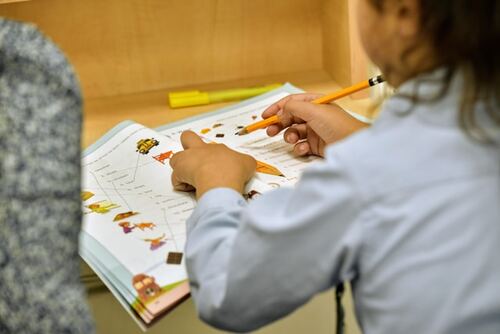Every parent wants the best for their child, especially regarding education. However, with the growing demands of today’s school system, many children find it challenging to keep up. This is where primary school teaching can make a world of difference.
It’s not just about getting better grades; it’s about nurturing a kid’s overall growth and confidence. But why is primary school tutoring so essential for every child’s development? Let’s dive into the key reasons.
1. Personalised Learning Experience
One of the most significant benefits of school tutoring is the personalised learning experience it offers. In a traditional classroom setting, a teacher has to cater to the needs of many students. This makes it difficult to focus on each kid individually.
However, with tutoring, a child receives one-on-one attention. This means that lessons are tailored to their specific needs, strengths, and areas of improvement. Isn’t kids learning easier when the teaching style aligns with their unique learning pace and preferences?
2. Builds Confidence and Motivation
When a child struggles with schoolwork, it can affect their self-esteem. They may believe they are not smart enough or will never succeed in school. However, tutoring can change that narrative. By providing the support and encouragement needed to overcome academic challenges, tutoring helps to rebuild a kid’s confidence.
Their learning motivation grows as they start to understand concepts they previously found difficult. This newfound confidence isn’t just limited to academics. It spills over into other areas of their life, leading to a more positive and proactive attitude.
3. Reinforces School Learning
Kids are often introduced to new concepts in school, but with limited time and the fast pace of a classroom, they may need more time to grasp the material thoroughly. Tutoring reinforces what is taught in school, providing the extra practice and explanation needed to solidify understanding. This reinforcement is crucial, especially for subjects that require a strong foundation, like maths and reading. Additionally, tutoring allows for a preview of upcoming topics, giving the child a head start and making school lessons easier to comprehend.
4. Develops Study and Organisational Skills
Good study habits and organisational skills are essential for academic success. Unfortunately, these skills are not always taught explicitly in school. A tutor can play a pivotal role in helping a child develop these important skills.
By teaching children how to effectively manage their time, organise their notes, and approach their studies, a tutor equips them with the tools they need to succeed not just in school but in life. These skills are lifelong assets that will benefit the child well into adulthood.
5. Addresses Learning Gaps Early
Learning gaps can develop for various reasons—missed school days, transitions between grades, or simply not understanding a concept when it was first introduced. If not addressed early, these gaps can widen over time. This makes it increasingly difficult for the child to catch up.
Tutoring helps to identify and address these gaps before they become major roadblocks. By revisiting previous lessons and ensuring a solid understanding before moving on, tutoring prevents the accumulation of knowledge gaps and sets the stage for future academic success.
7. Provides a Safe Learning Environment
In a busy classroom, some children may hesitate to ask questions or express their confusion due to fear of embarrassment. Tutoring provides a safe and supportive environment where children can freely ask questions, make mistakes, and learn without judgement. This freedom allows them to explore their curiosity and gain a better understanding of the subjects they find difficult. The result is a more engaged and confident learner.
Primary school tutoring has become more than a luxury; it’s necessary for many children. So, is it time to consider tutoring for your child? The answer is a resounding yes if you want to provide them with the best possible foundation for their future.










